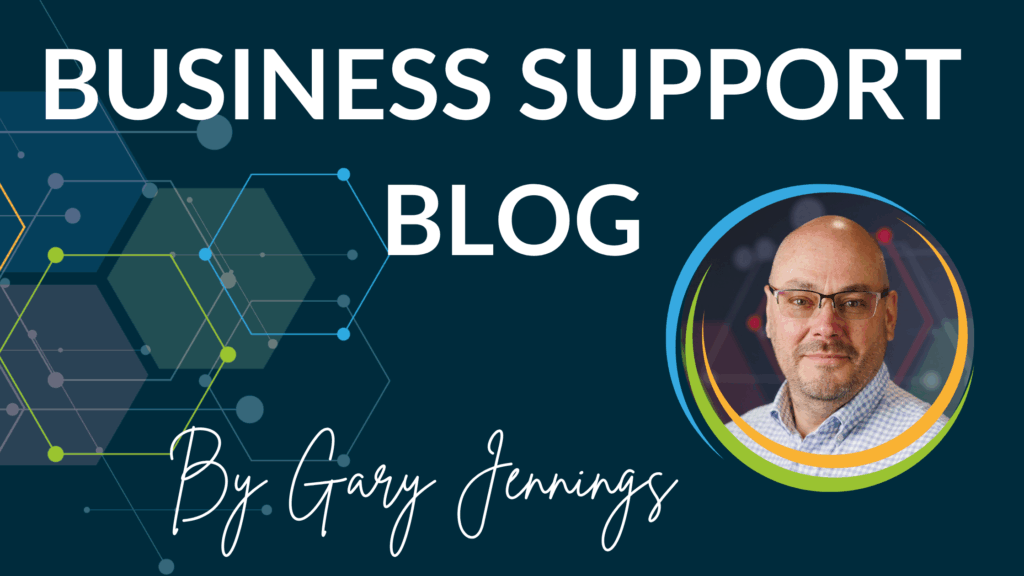An Interview with Gary Jennings, Innovation Director, The EpiCentre Haverhill
For many UK start-ups in biotech and AI, selling doesn’t come naturally. Founders are often scientists, engineers, developers or researchers—brilliant at building, but less comfortable with business. Yet, no matter how innovative your product is, it won’t make an impact unless someone buys it.
To explore how technical founders can become more effective at sales, we spoke with Gary Jennings, Innovation Director at The EpiCentre Haverhill. He’s helped dozens of start-ups across the UK. His advice? Take a few cues from an unlikely source: car salespeople.
Q: Car sales and biotech don’t seem like obvious bedfellows. What’s the connection?
GJ: It’s true—they seem worlds apart. But car salespeople are incredibly skilled at guiding people through complex, high-stakes, personal decisions. They know how to build trust quickly, uncover what really matters to the buyer, and communicate value in a way that resonates. Those are exactly the skills founders need when they’re trying to sell something new and unfamiliar.
Q: So how does that translate into a biotech or AI context?
GJ: Let’s start with how you open a conversation. A good car salesperson doesn’t launch into a list of features—they start by getting to know the customer. In fact, they usually start with a handshake and introducing themselves. In technical sales, you can do the same by showing you understand the client’s world.
For example, if you’re pitching a diagnostic platform to a distributor specialising in healthcare sector, you might begin by referencing a recent clinical trial they were involved in. That kind of personalisation builds rapport and shows you’re not just there to sell—you’re there to collaborate.
Q: What happens after that initial connection?
GJ: Then it’s about asking the right questions. Car salespeople are trained to diagnose before they prescribe, just like doctors do. They’ll ask, “Is there anything in particular you are looking for?” before discussing a model. Founders should do the same.
If you’re offering an AI tool for pharma R&D, ask, “How are you currently handle recruitment for clinical trials?” or “Where do you see the most delays in your data pipeline?” These questions uncover pain points and help you tailor your pitch to what actually matters to them.
Q: Many founders struggle with explaining their tech in a way that makes sense to non-technical buyers. Any advice?
GJ: That’s a big one. Founders often default to talking about technical features or processes—algorithms, data sets, model accuracy. But to come back to our analogy, car buyers don’t always care about the engine specs—they care about how it drives, handles and performs.
So instead of saying, “Our platform reduces false positives by 12%,” say, “That means your team spends 30% less time reviewing irrelevant alerts, freeing them up for more strategic work.” Basically translating technical benefits into business outcomes. That’s what sticks.
Another aspect to be wary of is the amount of information you give. It is so easy to try to tell your potential customer everything about what you do, how you developed it, and what you have achieved. There’s an adage that says ‘the right information at the wrong time is the wrong information…’. You need to tell the customer what they need to know to make an informed decision but not blow them away with facts and figures. This could be a real turnoff or become confusing, which results in a lack of clarity.
Q: What about creating urgency? In car sales, there’s always a “limited-time offer.” Can that work in biotech or AI?
GJ: Absolutely—but it needs to be authentic. With B2B customers, sales cycles are longer, and buyers more cautious. But you can still create momentum by framing your offer as a limited opportunity.
For instance, you might say, “We’re selecting three partners this next 6 months to co-develop our dashboard.” That creates a sense of exclusivity and encourages action, without applying pressure. It’s about positioning your offer as something valuable and time sensitive.
Q: Objections are inevitable. How should founders handle them?
GJ: Always with empathy and curiosity, and never with judgement. If a client says, “We’ve tried automation tools before—they didn’t work,” don’t jump in with a rebuttal. Instead, ask, “What didn’t work out with them?” That opens the door to a real conversation.
Once you understand their concern, you can respond with evidence—maybe a case study from a similar client who had the same issue and saw success with your solution. That kind of response builds credibility and shows you’re listening, not just selling.
An objection is the start of a conversation not a refusal, and what looks like resistance is usually a lack of clarity. Your job is to help drive that clarity.
Q: And after the meeting—how do you keep the momentum going?
GJ: Follow-up is where a lot of founders drop the ball. Some just say they wait for the customer to come back from them. In fact, this is more common than you’d think. You need to schedule a follow-up. I ask, “shall I give you a call next week or early the week after”. This does two things, firstly it gives the customer an option of when you will contact them, but also doesn’t give them the opportunity to say that they will be in touch–you take control.
When you do follow-up, don’t just send a “checking in” email. Instead, follow up with something useful—a case study, a product update, or even perhaps a short video showing how your tool improved a client’s workflow.
And make the next step easy. Say something like, “Would you like to explore a two-week pilot using your real data?” That keeps the conversation moving and lowers the barrier to engagement. It is a way to show your solution works in their environment.
Q: Let’s talk about closing the sale. That’s where many founders freeze. What’s your advice?
GJ: Closing doesn’t have to be awkward. In fact, if you’ve done everything else right—built rapport, understood their needs, shown the value—then closing is just the natural next step.
The key is to be clear and confident. Don’t end a meeting with, “Let me know what you think.” Instead, say, “Based on what we’ve discussed, would you be open to starting with a pilot next month?” or “Shall we schedule a follow-up to finalise the scope?”
You’re not forcing a decision—you’re guiding one. And you’re making it easy for them to say yes. Remember not to add “or not” at the end of a closing question. You want to make it easy for them to say yes, you don’t want to make it that easy for them to say no (even though they will if they really want to).
Q: Many start-ups build platforms that could work across multiple sectors. Is that a strength or a challenge?
GJ: It’s both. It’s great to have a flexible solution, but trying to sell to everyone at once is a fast track to selling to no one. One of the most important things a founder can do early on is to find their niche—an industry, a use case, a customer type, where the pain is sharp and the value is clear.
I often tell founders: your product might be horizontal, but your messaging needs to be vertical. Focus on one sector where you can build traction, gather case studies, refine your pitch, and ultimately generate revenue. Once you’ve proven value in one space, it becomes much easier to expand into others.
Q: Can you share an example of that approach working?
GJ: Sure. I worked with a start-up that had built a machine learning platform for operational optimisation. It could be used in logistics, healthcare, manufacturing—you name it. But they were struggling to get traction because their message was too broad.
We helped them focus on small biotech labs, where scheduling and inventory issues were a real pain point. Within three months, they had signed four clients. That initial traction gave them the credibility and confidence to expand into adjacent sectors later on.
Q: For founders who feel uncomfortable with sales, what’s your advice?
GJ: You don’t need to become a slick salesperson. You just need to communicate the value of your innovation in a way that resonates with the person in front of you. That means listening first, speaking in outcomes, and following up with purpose, and being you. Remember that people buy from people, so trust and authenticity is the most important.
Selling isn’t about pressure—it’s about clarity and empathy. And when you approach it that way, it doesn’t feel like selling at all. It feels like helping.
Q: Final thoughts for SME founders trying to grow their customer base?
GJ: Think like a car salesperson—not in the cliché sense, but in the way they understand people. They know how to build trust, uncover needs, and guide someone toward a decision. If you can do that—ethically and authentically—you’ll not only sell more, you’ll build better relationships and longer-term partnerships.
So next time you’re preparing for a pitch, don’t just polish your slide deck. Think about what your customer really needs to hear—and how you can help them

About Gary Jennings
Gary Jennings is the Innovation Director at The EpiCentre Haverhill; an innovation centre where he delivers inclusive business support to the various companies there.
He’s an expert in driving growth, revenue streams and innovation, helping SMEs succeed in both the UK and international markets. He’s worked with former Fortune 500 global organisations through to building his own SME. He’s supported government departments on international growth strategies, served as a Digital Innovation Fellow for the University of Plymouth, and is a trusted non-executive director within NHS-based companies. Gary continues to run his own business too so understands the pressures and needs in the real world. With his extensive regional, UK and international network, Gary keeps his focus on the driving revenues whilst managing the bottom line to drive your business forward.
The EpiCentre Haverhill offers flexible workspaces; it is the centre of a collaborative community of innovators, start-ups, and scale-ups, where companies of all types and sizes rent purpose-built offices, lab space, coworking desks and meeting rooms on Haverhill Research Park. To find out more about The EpiCentre and the inclusive and unlimited business support, visit www.epicentrehaverhill.co.uk
To find out more about Office Space | The EpiCentre | Haverhill, Cambridge (epicentrehaverhill.co.uk)
To find out more about Lab Space | The EpiCentre | Haverhill, Cambridge (epicentrehaverhill.co.uk)
To find out more about Our Members | The EpiCentre | Haverhill, Cambridge (epicentrehaverhill.co.uk)
To find out more about Business Support | EpiCentre | Cambridge, Haverhill (epicentrehaverhill.co.uk)
